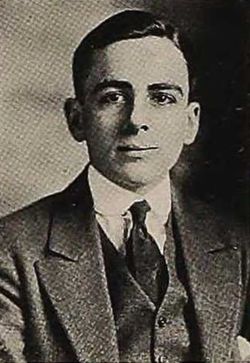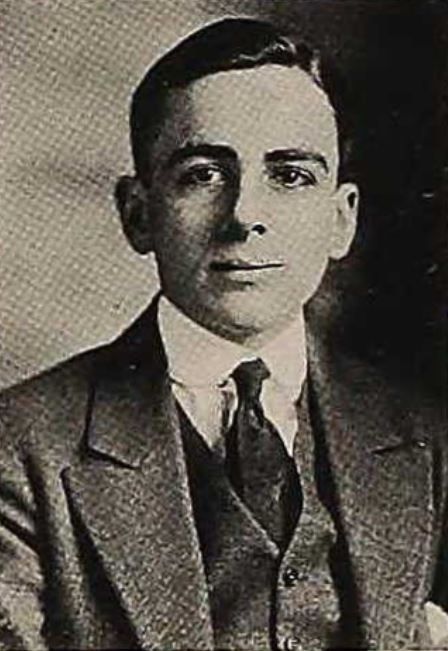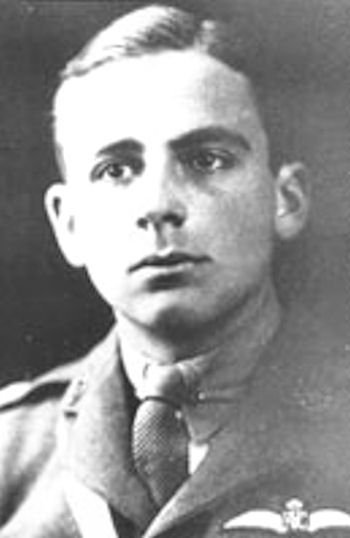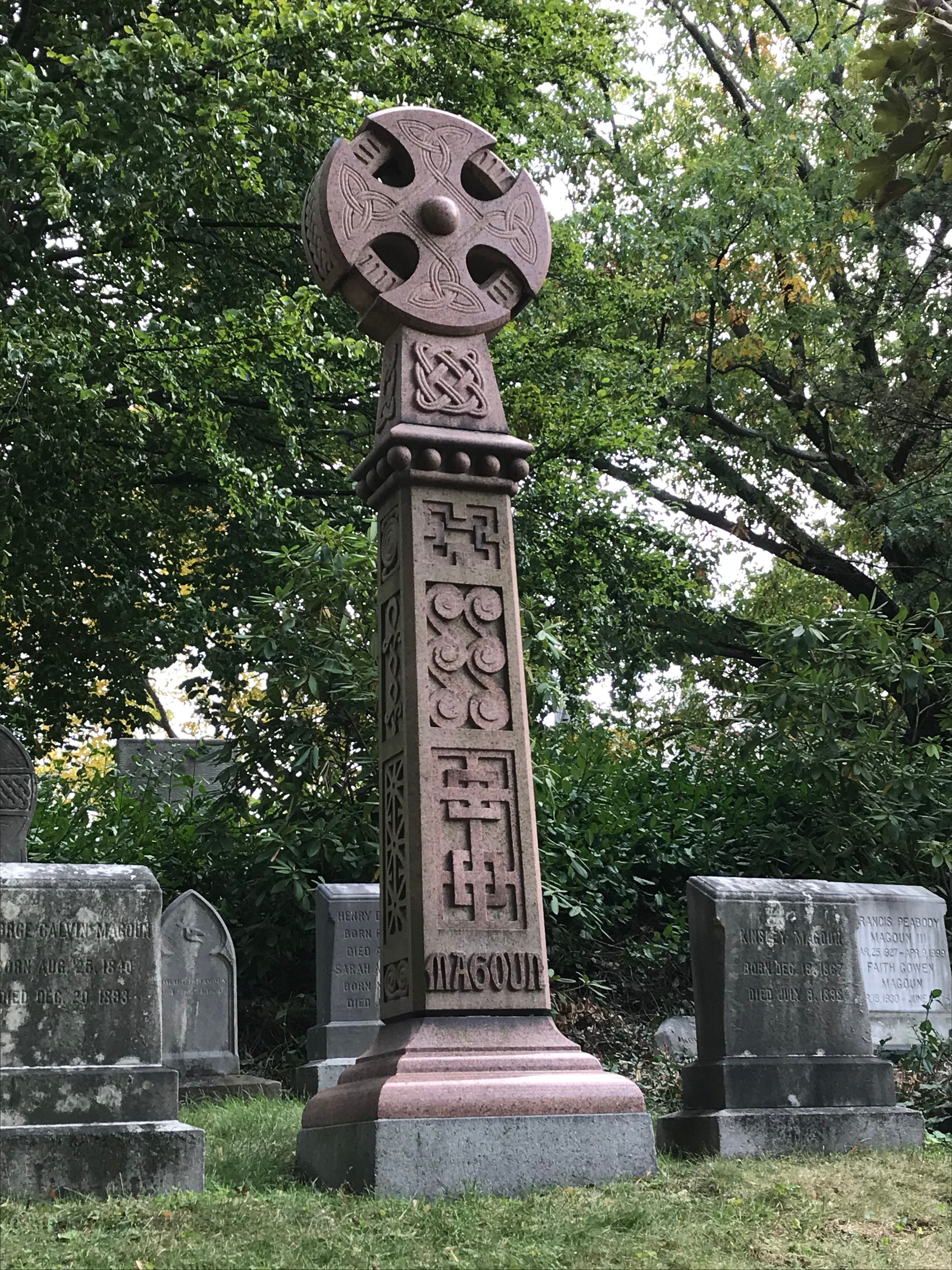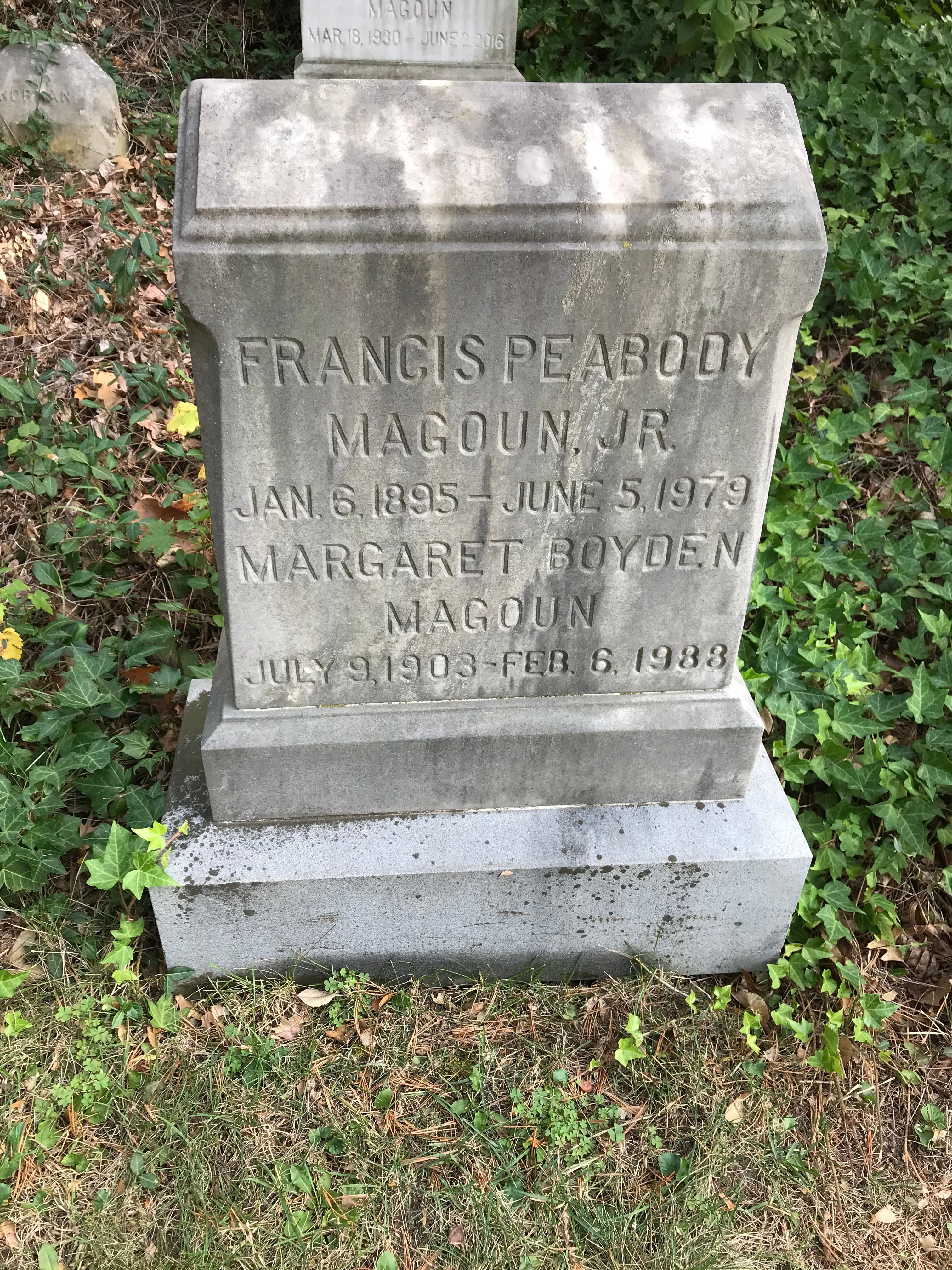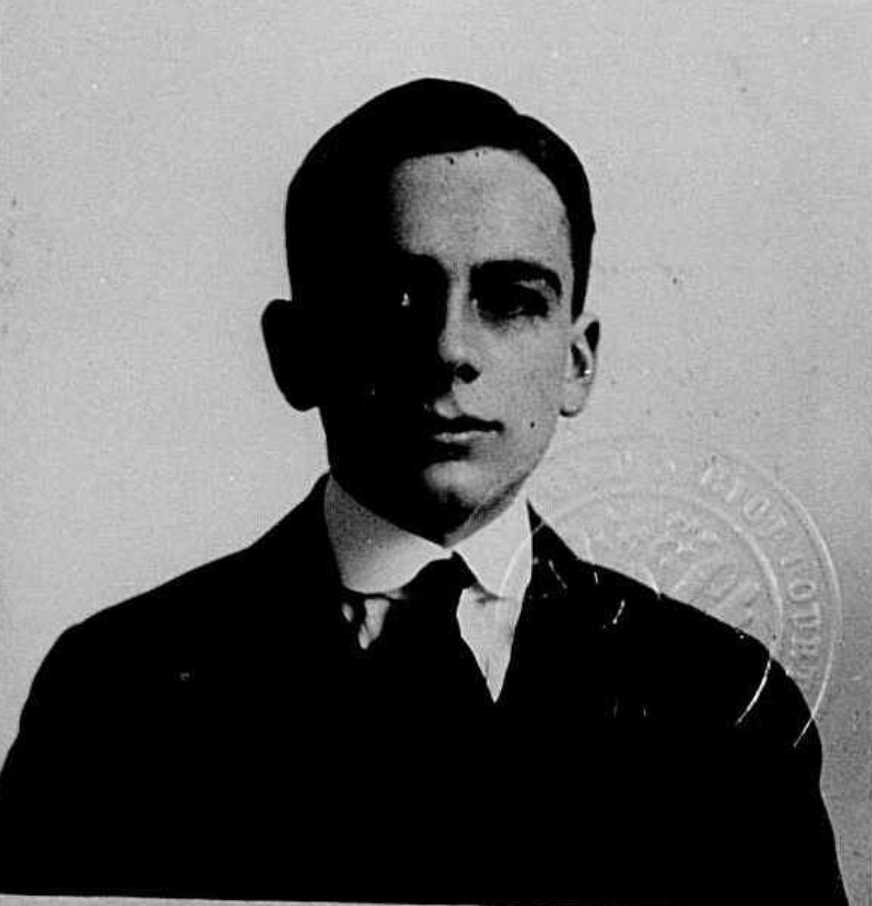Magoun was born to a prosperous family in New York City. His parents were Francis Peabody Magoun (1865–1928) and Jeanne C. Bartholow (1870–1957). He received his primary education at the St. Andrew's School in Concord, Massachusetts, and at the Noble and Greenough School in Boston. He took his bachelors degree at Harvard in (1916), and in February of that year signed on with the American Field Service. From 3 March – August 3 he was a volunteer ambulance driver.
After a brief return to the United States, he went to London and enlisted in the Royal Flying Corps (to become eligible for service in the RAF, he lied and said he was Canadian; he claimed that he was from a town there where all birth records and other vital statistics had been lost in a fire). On July 4, 1917, he was commissioned a second lieutenant and assigned to 1 Squadron on November 14, flying Nieuport biplanes (later replaced by SE5a biplanes) against more maneuverable Fokker triplanes. He downed his first enemy aircraft on February 28, 1918, near Gheluvelt, another on March 10 fifteen miles (24 km) east of Ypres, and a third on March 15 in the vicinity of Dadizeele. His fourth was on March 28 near Quiery. He was wounded in action while strafing enemy troops on April 10, but returned to his squadron in October and became an ace on October 28, downing a Fokker D.VII near Anor for his fifth victory.
Magoun was awarded the Military Cross (MC) in June 1918: "For conspicuous gallantry and devotion to duty. When engaged on bombing work he attacked and shot down an enemy machine, with the result that it crashed to earth. He has also engaged massed enemy troops and transport with machine gun fire from low altitudes, throwing the enemy into the utmost confusion and inflicting heavy casualties. His work has been carried out with consistent keenness and tenacity." (MC citation, Supplement to the London Gazette, June 22, 1918)
Biography source - Wikipedia.org
Magoun was born to a prosperous family in New York City. His parents were Francis Peabody Magoun (1865–1928) and Jeanne C. Bartholow (1870–1957). He received his primary education at the St. Andrew's School in Concord, Massachusetts, and at the Noble and Greenough School in Boston. He took his bachelors degree at Harvard in (1916), and in February of that year signed on with the American Field Service. From 3 March – August 3 he was a volunteer ambulance driver.
After a brief return to the United States, he went to London and enlisted in the Royal Flying Corps (to become eligible for service in the RAF, he lied and said he was Canadian; he claimed that he was from a town there where all birth records and other vital statistics had been lost in a fire). On July 4, 1917, he was commissioned a second lieutenant and assigned to 1 Squadron on November 14, flying Nieuport biplanes (later replaced by SE5a biplanes) against more maneuverable Fokker triplanes. He downed his first enemy aircraft on February 28, 1918, near Gheluvelt, another on March 10 fifteen miles (24 km) east of Ypres, and a third on March 15 in the vicinity of Dadizeele. His fourth was on March 28 near Quiery. He was wounded in action while strafing enemy troops on April 10, but returned to his squadron in October and became an ace on October 28, downing a Fokker D.VII near Anor for his fifth victory.
Magoun was awarded the Military Cross (MC) in June 1918: "For conspicuous gallantry and devotion to duty. When engaged on bombing work he attacked and shot down an enemy machine, with the result that it crashed to earth. He has also engaged massed enemy troops and transport with machine gun fire from low altitudes, throwing the enemy into the utmost confusion and inflicting heavy casualties. His work has been carried out with consistent keenness and tenacity." (MC citation, Supplement to the London Gazette, June 22, 1918)
Biography source - Wikipedia.org
Family Members
Sponsored by Ancestry
Advertisement
Records on Ancestry
Advertisement
